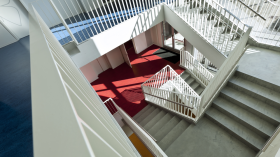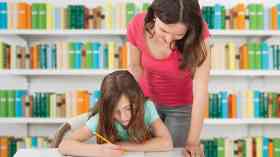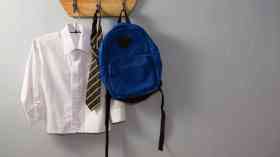Adding colour to the school experience
 I propose that we already know school trips are a ‘very good thing’, or more precisely a unique and powerful educational tool. Try some DIY research; take any group of adults and ask them if they remember the trips they took at school. You will be hard pressed to find one that doesn’t. Granted the memories might not be curriculum linked, but the vast majority will recall their experiences with a fondness, clarity and enthusiasm that isn’t replicated with class lessons. School trips add colour and texture to lives.
I propose that we already know school trips are a ‘very good thing’, or more precisely a unique and powerful educational tool. Try some DIY research; take any group of adults and ask them if they remember the trips they took at school. You will be hard pressed to find one that doesn’t. Granted the memories might not be curriculum linked, but the vast majority will recall their experiences with a fondness, clarity and enthusiasm that isn’t replicated with class lessons. School trips add colour and texture to lives.
School trips are self-evidently memorable and are consequently a powerful means of learning, comprehending and development. Of course, you would expect the general manager of an organisation called the School Travel Forum to suggest some such thing, but the sharp light of independent, academic research supports this hypothesis and suggests ways that school management can harness that power.
Raising educational standards?
Often quoted but still an important piece of research, Ofsted published a thematic report on Learning Outside the Classroom (LOtC) in October 2008. Its key findings found that: “When planned and implemented well, learning outside the classroom contributed significantly to raising standards and improving pupils personal, social and emotional development.”
It recommended that schools and colleges should: “Ensure that their curriculum planning includes sufficient well‑structured opportunities for all learners to engage in learning outside the classroom as a key, integrated element of their experience.”
More recent evidence in support of the 2008 Ofsted findings was highlighted in the ‘What Works’ document produced by the Cabinet Office that stressed the work of the six ‘What Works’ centres across the country. A recent Educational Endowment Foundation trial stated: “Pupils that went on school trips were taught a structured approach to improving their writing using the trip as a source of inspiration. The pupils who received this intervention made an average of one months progress compared to the control group.”
Further work looking at the impact of residential experiences on pupil attainment has been undertaken through the Paul Hamlyn Foundation Learning Away programme. Their findings from the evaluation to date are stated as: “Clearly showing that students, staff, parents and schools valued learning away residentials. The evidence continues to show that many positive impacts seen on residentials, for example the development of relationship, confidence and engagement with learning, as well as the delivery of learning, were also sustained back at school.”
In 2013 the University of Hull undertook a study analysing the impact of a simple child led, field based learning task on children’s scientific knowledge and literacy skills. It revealed that: “On average children who had undertaken the fieldwork activity achieved higher literacy scores than children that did not.”
Finally, the Teaching and Learning Research Programme which ran from 2000 to 2011 was the UK Economic and Social Research Council’s largest investment in educational research. It concluded in 2008 with one of its ten principles for effective teaching and learning being that: “Informal learning, such as learning out of school, should be recognised as at least as significant as formal learning and should therefore be valued and appropriately utilised in formal processes.”
Is it just about the kids?
The same Learning Away research mentioned above was also able to evidence the impact residentials have on school and staff development. When considering how residentials transform schools they concluded: “When residential experiences are integrated with the curriculum, are inclusive, progressive and involve staff and students in planning and following up, the sense of cohesion and of belonging to a community is enhanced throughout the whole school. This change can impact on the classroom, year group, and school life as a whole.”
In the evaluation of the Learning Away case studies, Maggie Rose, headteacher at Timberley Academy quotes about the development of her staff: “Staff have developed a much greater confidence in their own teaching and it has also raised their aspiration in terms of the types of approaches they could use in their work. I see it in their planning and in the classroom – an example is the use of film. I see this being used in class very cleverly and far more often by pupils and staff. We have changed our whole approach to the school curriculum and the staff have developed the confidence to go with this and contribute to its vision of development.”
Outdoors or indoors?
Often the first thoughts about school trips are children working in and experiencing the outdoors, be it field studies, geography field trips or outdoor and adventurous activities. Many great experiences are associated with the natural environment and there is a wide range of well-researched and vocal support for incorporating opportunities such as these into the school life of all pupils.
But these are not the entirety of learning opportunities; the concept of LOtC not only incudes the outdoors, but equally includes what might be described as ‘learning inside, but elsewhere’. The extra impact added to religious study that takes place in mosques and churches is a good example.
Equally, LOtC encapsulates ‘learning in new and different places’, which literally could include the whole world. Think about the greater understanding of the effects of WW1 that would come from integrating a visit to the Battlefields into the study of the subject in school, or the beneficial effect of language immersion, that is only really possible by visiting other countries.
Consequently, the opportunity to enhance learning with trips out is considerable.
Conclusions
This article has focused narrowly on how school trips and LOtC raise educational standards and attainment in schools and is by no means a comprehensive explanation of all supporting evidence. Consequently, I should point out there is an equal, if not greater, body of evidence that identifies the many personal and social benefits associated with trips and residentials. The reason for the effectiveness of school trips is the coming together and interaction of so many positive factors.
Well managed trips and LOtC requires effort and a commitment of resources, but the benefits are there to be taken. A final word from Steve Dool, headmaster at Neston High School, which was cited as a good practice example by Ofsted in 2012.
He said: “For me, the reason for encouraging learning outside the classroom as a key philosophy is that it enables students to apply their learning in different and real contexts and to broaden their horizons and aspirations for their future lives. I am absolutely convinced that the ethos and culture in the school are vastly enhanced by the high level of participation. These activities are systematically and collegiately organised, evaluated and analysed, and are the heart and soul of our school.”
Further information
www.lotc.org.uk
Latest News
28/10/2025 - 09:29
Timeline set for removal of Reinforced Autoclaved Aerated Concrete
27/10/2025 - 14:37
The charter aims to make food education for children and young people a priority and act as a catalyst for change, improving provision in Bristol and beyond.
27/10/2025 - 09:30
Both unions announce formal support of NAHT’s legal action against Ofsted and its proposed new framework.
27/10/2025 - 09:14
A new Child of the North (CotN) report warns that the special educational needs and disabilities (SEND) system faces ‘a worsening crisis’.
24/10/2025 - 10:29
The government has updated its guidance on school uniforms, calling for schools to start limiting branded uniform and PE Kit items ahead of the Children’s Wellbeing & Schools Bill.







